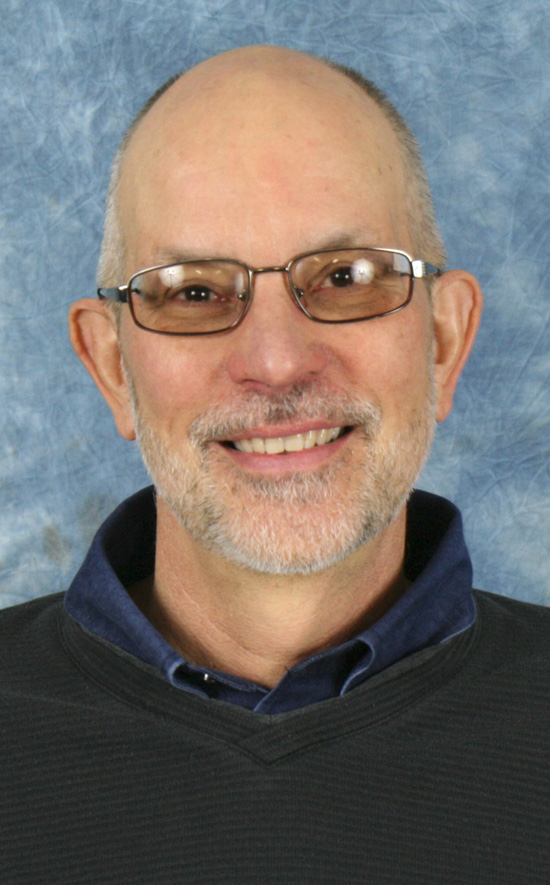By Dan Ebener
As we turn the page on the 2020 elections, I am reminded of a quote from Father Marv Mottet: “Voting in elections is important but it is only 1% of our political responsibility as Catholics.”
The Catholic Messenger editorial of Jan. 21 (“Practice the best qualities of democracy”) and the Father Ron Rolheiser piece of the same day (“What is love asking of us now?”) both point to the need to get beyond the political divisiveness of our current climate.
After hearing President Biden’s inaugural speech calling for unity, and the Republican response, which was mostly positive, it seems that we are at a pivotal moment. What could unite the country is to tend to the sick and dying, find jobs for the unemployed, fix our infrastructure and control the virus enough to keep our people safe, our schools open and our small businesses afloat.

These specific issues, for the most part, are supported by both political parties and consistent with Catholic social teaching. So often, we focus on what divides us politically. We attack the people on the other side instead of attacking the problems we are facing together.
Imagine if we truly prayed for our political enemies, as Jesus taught. Imagine if we sought first to understand and then to be understood, as St. Francis prayed. Imagine if we used our Catholic doctrine to form our consciences instead of following the entire agenda of either political party.
As Catholics, if we truly follow church teaching, we would be less partisan because neither party aligns perfectly with church teaching. If your views align entirely with either the Democrats or Republicans, your views on some issues are not consistent with church teaching. However, most of us tend to identify with one party or the other because of one or a few issues that are consistent with church teaching. Then we buy into the entirety of that party’s agenda instead of forming our positions based on the entirety of Catholic teaching.
For example, many Catholics identify as Democrats because that party has historically identified itself more with the working class. The Catholic Church supports the right to work, the right to unionize and the dignity of work. Many Catholics became “blue collar Democrats” and tended to vote Democratic for decades. The big split came when the Democratic Party began to identify with the right to abortion.
After Roe vs. Wade (1973), many Catholics switched over to the Republican Party because of that issue. For the past 50 years, Catholics have been about 50-50 between the two parties. The problem is that many of us identify as Democrats, and take on their entire agenda, while many of us identify as Republicans and adopt their entire agenda.
Take for example the wearing of masks, which many surveys show is more popular among Democrats than among Republicans. Does it really make sense for “pro-life” people to oppose the wearing of masks? Does it really make sense for “pro-mask” people to be “pro-life” on masks but not abortion? Those who oppose the wearing of masks often oppose masks because of “freedom of choice,” which is precisely what drives “pro-choice” people to justify abortion.
The Catholic Church has always taught that freedom comes with responsibility. With the right to life comes a responsibility to protect life. With the right to vote comes a responsibility to form one’s conscience. With the right to private property comes the responsibility to use that property for the common good, etc.
Freedom must be tempered with justice. Individual rights must be tempered with concern for the collective good. This explains why we are pro-life on abortion, why we believe in progressive taxation, why we support comprehensive immigration reform, and so on.
One way to understand the principles of Catholic social teaching is to reflect on the works of mercy. We are called in charity to perform the works of mercy privately. We are called in justice to change the structures of society to make sure that the hungry are fed, the sick are cared for, the homeless are sheltered and the least are protected. This explains why we value the life and dignity of each human person, especially the most vulnerable.
If Catholics were to reflect on Catholic social teaching, and the entirety of its teaching, they would automatically be less partisan. They would realize that they cannot fully associate with either party. Instead of buying into the full agenda of either the Democrats or Republicans, imagine if we would confront each party when they are not living up to our values. This is what Father Mottet meant when he said voting is only 1% of our political responsibility.
(Dan Ebener is director of parish planning for the Diocese of Davenport.)











